The art of boreholes: Essex artists visit the BGS to be inspired by our library of geological core
Two UK-based artists visitors aim to turn art and earth science into a collaborative experience that facilitates discussion on land usage.
02/11/2023 By BGS Press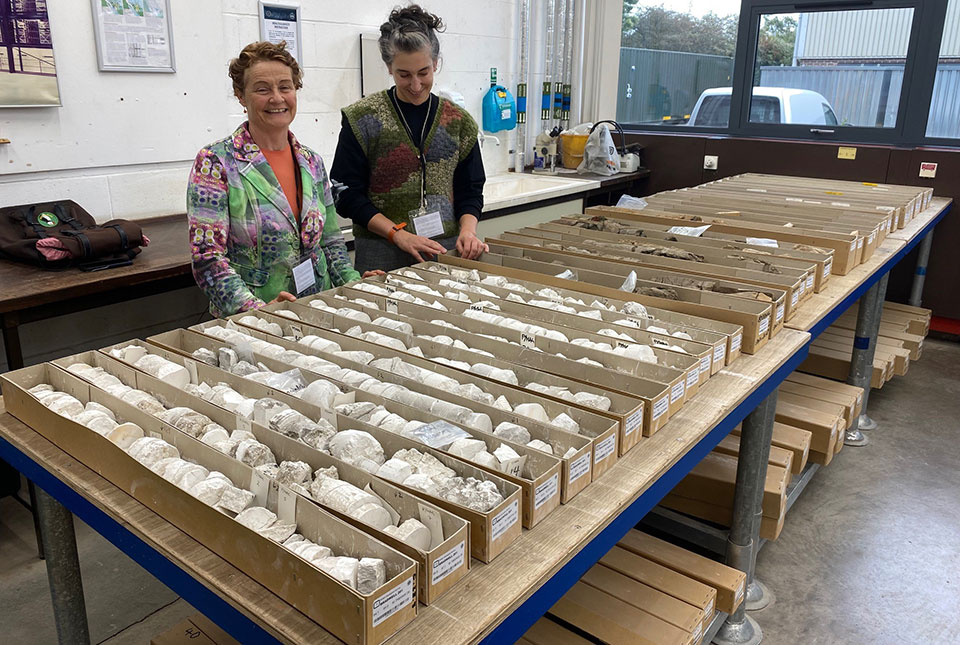
October 2023 saw BGS’s National Geological Repository (NGR) welcome two UK-based artists who were visiting the collections as part of their individual projects focused on the Blackwater Estuary in Essex. Nastassja Simenski and Angenita Teekens visited the repository to view core samples from around Bradwell A, a Magnox-design nuclear power station located on the Dengie peninsula at the mouth of the River Blackwater in Essex. The power station has been in long-term decommissioned management since 2019.
The landscape of the Blackwater Estuary
Nastassja Simenski, artist and researcher at University College London, is studying for her PhD on the potential of collaborative fieldwork between artists and archaeologists. She is particularly focused on how the development of place-specific and collaborative methods ‘in the field’ enable new ways of highlighting current conversations around energy production in the Blackwater Estuary.
Visiting the BGS repository and seeing the core samples from the Bradwell and Blackwater Estuary helped me to get a sense of how the geology of the area has shaped the landscape over time and, in turn, impacted the types of human production and interaction here over long durations […] for instance, the core samples from Bradwell are a starting point from which we can think about how a seemingly remote part of the Essex coast is implicated in wider contexts like managed realignment and climate change mitigation, agricultural policy, natural and cultural heritage, and the development of new forms of energy production.
Nastassja Simenski
Natassja’s research includes place-based art practices and considers how specific scientific research and data such as BGS core samples can be used creatively to tell bigger stories that move across long time periods and wider geographies. The issues explored in her research are mediated through art including the potential to use data, historical records and interviews to inform musical scores, live performances and films that get shown in situ or in galleries, broadcast on radio and screened at film festivals. Natassja’s research includes place-based art practices and considers how specific scientific research and data such as BGS core samples can be used creatively to tell bigger stories that move across long time periods and wider geographies. The issues explored in her research are mediated through art including the potential to use data, historical records and interviews to inform musical scores, live performances and films that get shown in situ or in galleries, broadcast on radio and screened at film festivals.
Earthworks: boreholes and dorodangos
Angenita Teekens is an established artist with 25 years of experience in facilitating environmental community art projects. Her most recent project, ‘Earthworks’, is a community inquiry about bore samples, extraction, disposal and the energy transition. The project will see members of the Othona community, as well as community groups in Essex, creating 260 dorodangos, which will be twinned with bore samples taken from fields adjacent to Bradwell, which are currently stored at BGS.
The Japanese dorodango artform consists of a small sample of clay rolled into a sphere by human hands within human time, as part of a slow meditative practice.
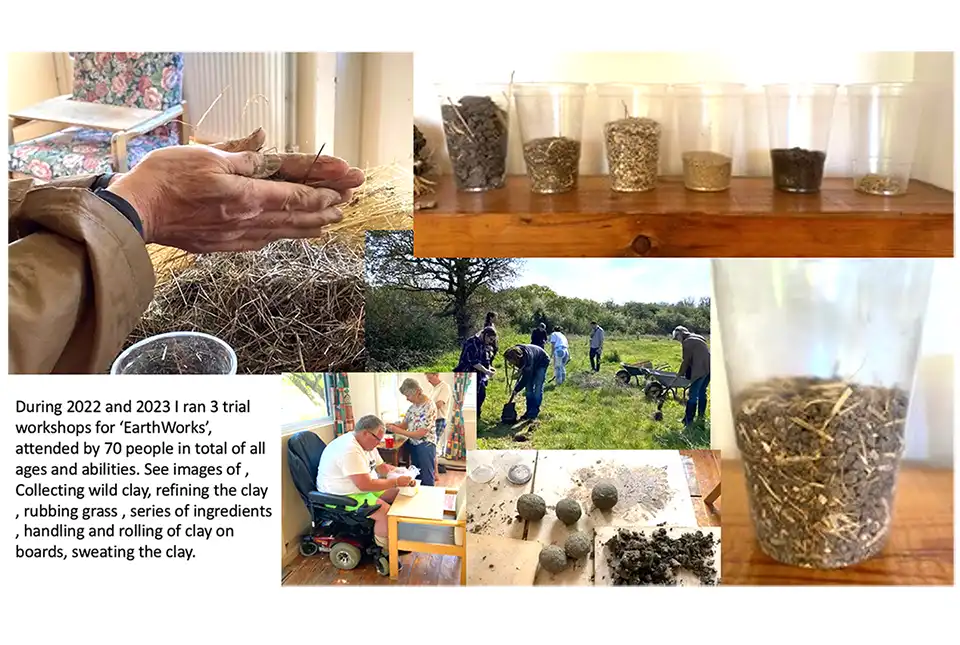
Dorodango-making workshops. ©Angenita Teekens.
Accessing the BGS collections is a vital source of information for the creation of a borehole catalogue as part of Angenita’s project. The inclusion of visual materials such as borehole logs, along with sketches, drawings and writing, will help to guide participants in their creation of the dorodangos, whilst questioning land use, energy production, geological and human time and human impact on land.
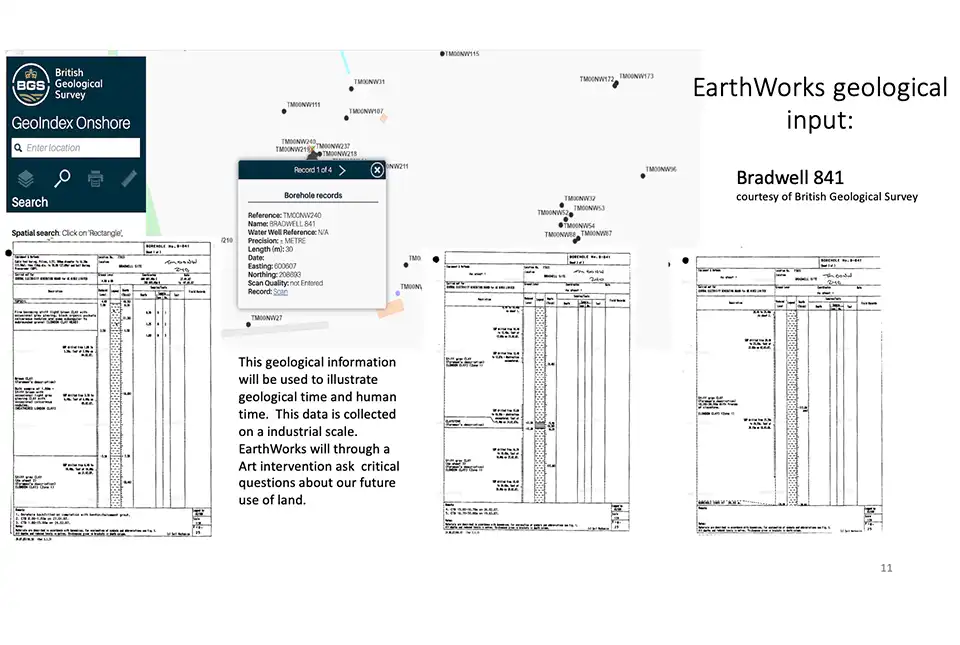
Examples of BGS data used in the projects. BGS © UKRI.
The National Geological Repository at BGS
The National Geological Repository (NGR) is a UKRI national science facility and the largest collection of geoscience samples from the UK. It forms an integral part of BGS (part of UKRI’s Natural Environment Research Council) and is located at the BGS’s headquarters in Nottinghamshire.
NGR’s unique collections are used extensively by industry, in research and to support university teaching. It has the UK’s largest core storage and examination facility, with the Core Store and records collections at its centre. The collections include:
- borehole cores and samples
- fossils, rocks and other samples
- related subsurface information from the UK landmass and continental shelf
About the artists
Harper, W, and Simensky, N. 2023. Care and maintenance in perpetuity: the nuclear landscape of the Blackwater Estuary. Chapter 14 in St Peter-On-The-Wall: Landscape and Heritage on the Essex Coast. Dale, J (editor). (London, UK: University College London Press.) ISBN: 9781800084353
Relative topics
Related news
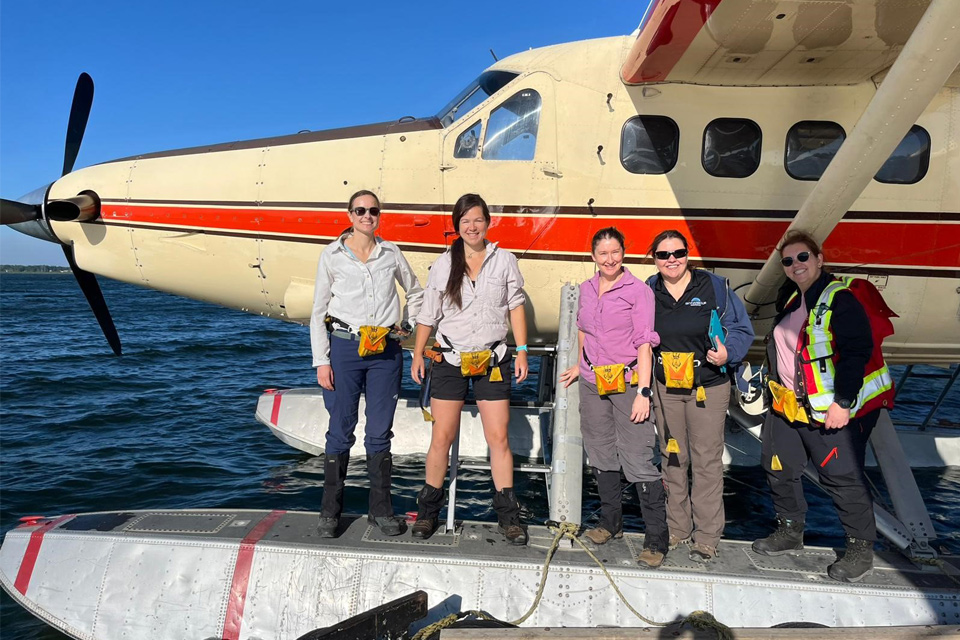
Funding awarded to UK/Canadian critical mineral research projects
08/07/2025
BGS is part of a groundbreaking science partnership aiming to improve critical minerals mining and supply chains.
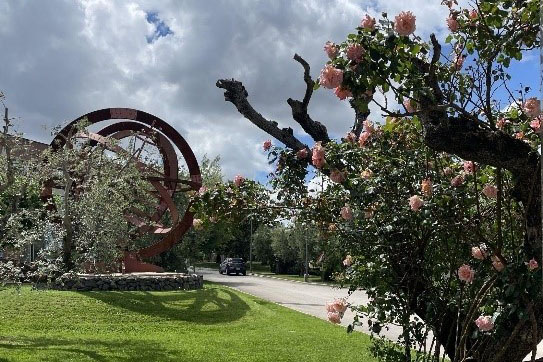
AI and Earth observation: BGS visits the European Space Agency
02/07/2025
The newest artificial intelligence for earth science: how ESA and NASA are using AI to understand our planet.
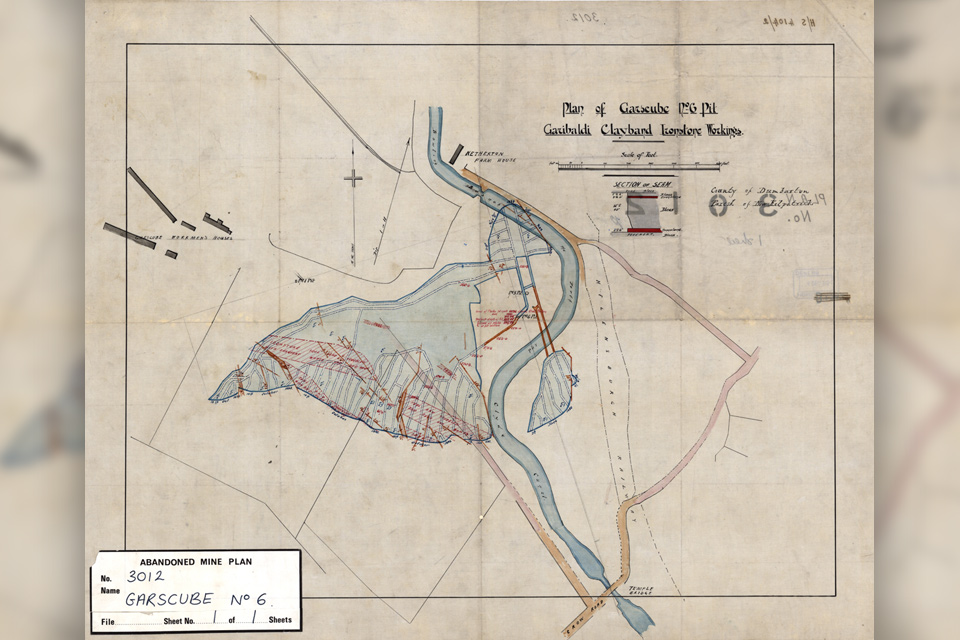
Release of over 500 Scottish abandoned-mine plans
24/06/2025
The historical plans cover non-coal mines that were abandoned pre-1980 and are available through BGS’s plans viewer.
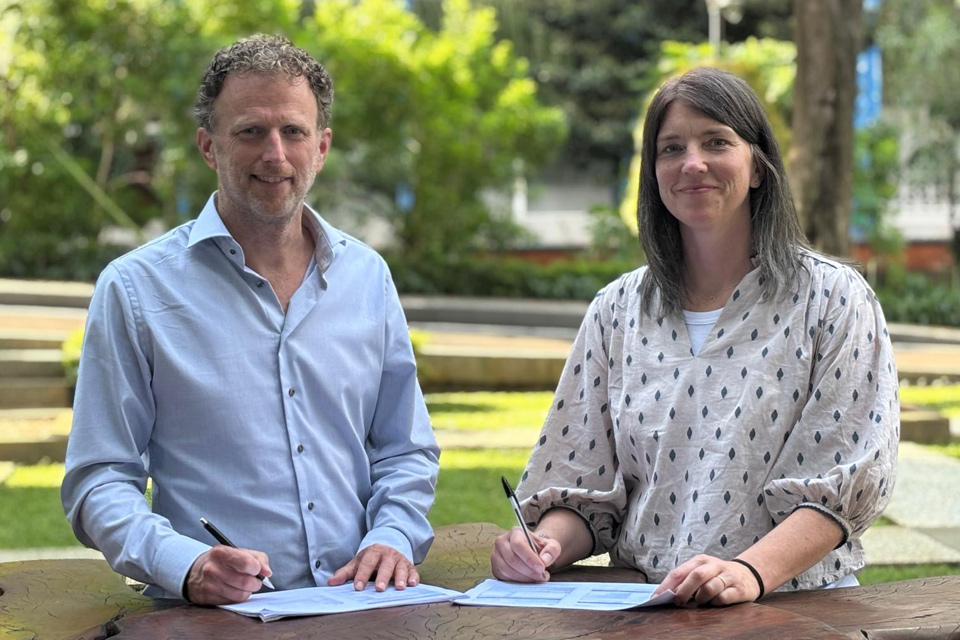
New collaboration aims to improve availability of real-time hazard impact data
19/06/2025
BGS has signed a memorandum of understanding with FloodTags to collaborate on the use of large language models to improve real-time monitoring of geological hazards and their impacts.
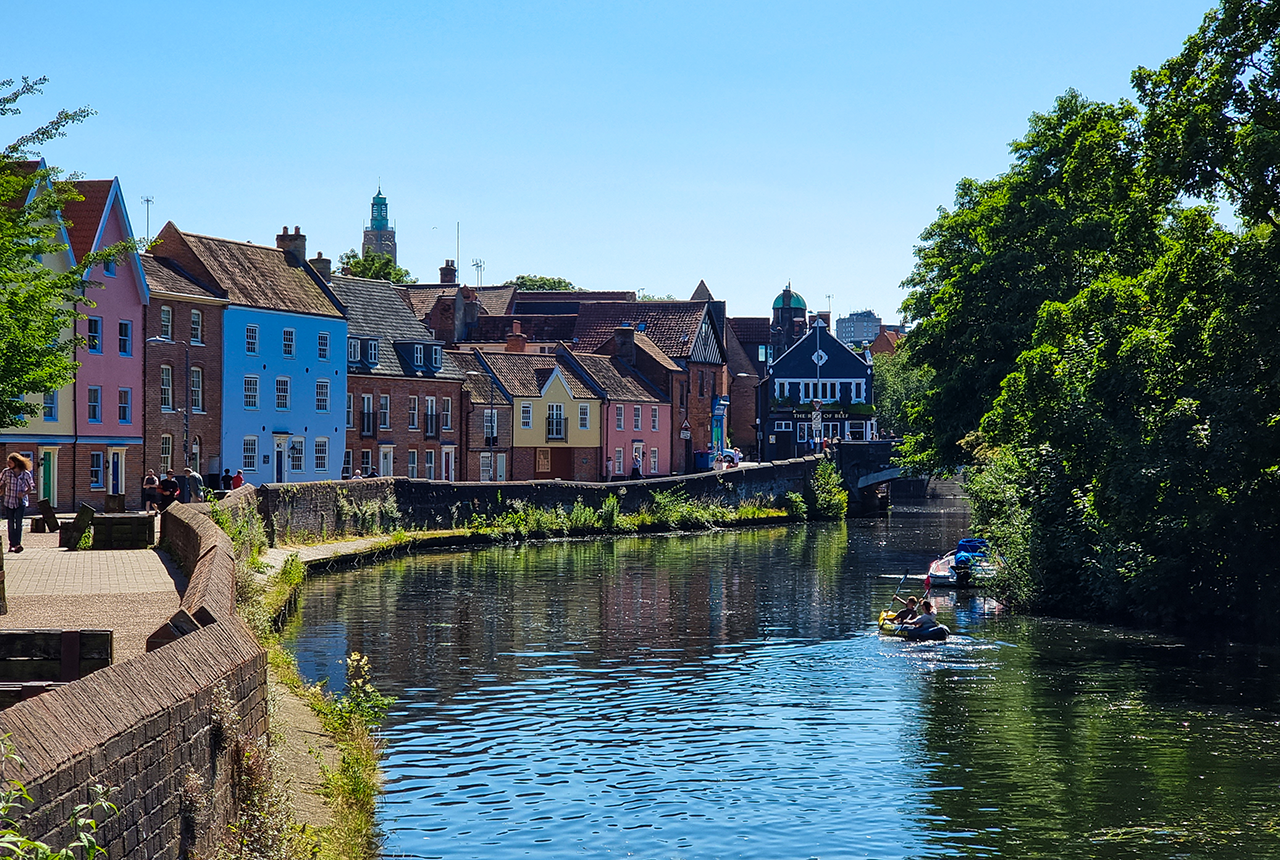
Modern pesticides found in UK rivers could pose risk to aquatic life
17/06/2025
New research shows that modern pesticides used in agriculture and veterinary medicines have been found for the first time in English rivers.

Goldilocks zones: ‘geological super regions’ set to drive annual £40 billion investment in jobs and economic growth
10/06/2025
Eight UK regions identified as ‘just right’ in terms of geological conditions to drive the country’s net zero energy ambitions.
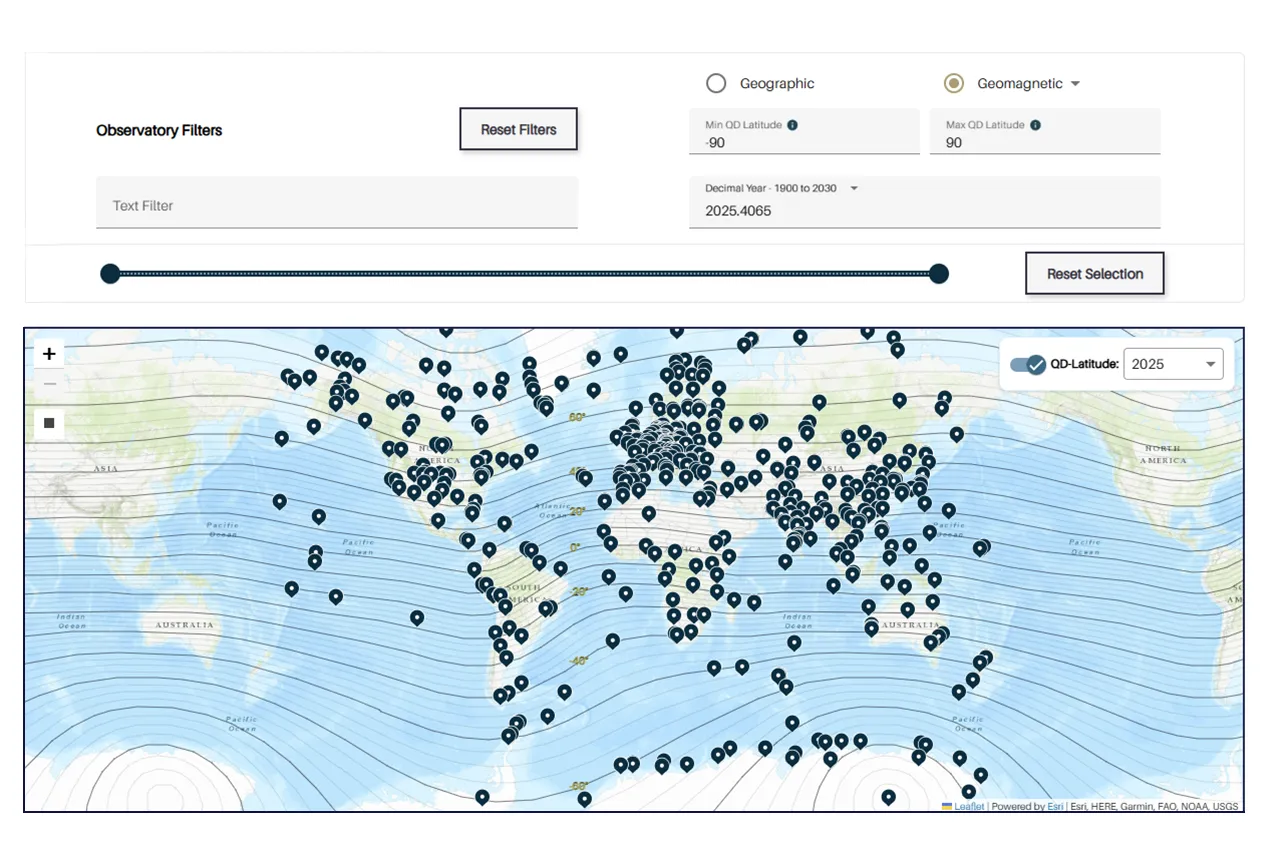
Upgraded web portal improves access to geomagnetism data
02/06/2025
BGS’s geomagnetism portal, which holds data for over 570 observatories across the world, has received a significant update.

BGS digital geology maps: we want your feedback
29/05/2025
BGS is asking for user feedback on its digital geological map datasets to improve data content and delivery.

What is the impact of drought on temperate soils?
22/05/2025
A new BGS review pulls together key information on the impact of drought on temperate soils and the further research needed to fully understand it.
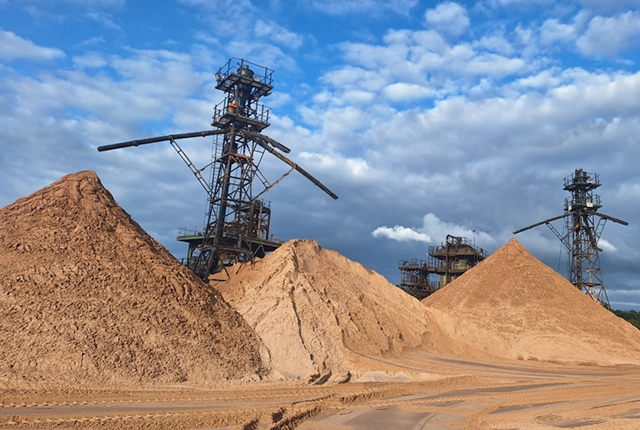
UK Minerals Yearbook 2024 released
21/05/2025
The annual publication provides essential information about the production, consumption and trade of UK minerals up to 2024.

BGS scientists join international expedition off the coast of New England
20/05/2025
Latest IODP research project investigates freshened water under the ocean floor.

New interactive map viewer reveals growing capacity and rare earth element content of UK wind farms
16/05/2025
BGS’s new tool highlights the development of wind energy installations over time, along with their magnet and rare earth content.




